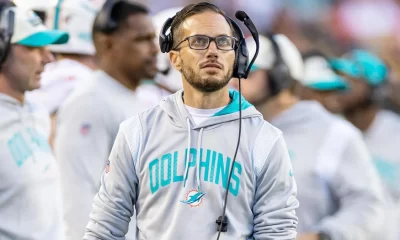Actor Ashley Park was never well versed in personal finance.
“We’re told in this generation you can do what you want and you can be who you want to be,” says the 31-year-old about being a millennial. But many young people aren’t given the financial tools to make that happen.
Park grew up in Ann Arbor, Michigan, and started her career performing on and off Broadway. She earned a Tony Award nomination for her performance as Gretchen Wieners on Broadway’s “Mean Girls” in 2018 and, most recently, received a Critics’ Choice Award nomination for her performance as Mindy Chen on Netflix’s “Emily in Paris.”
As her career has grown, Park’s finances have become more complicated. “Half of my job is in Paris now,” she says. “I have to pay French taxes.”
Along with not knowing exactly how to manage her money, Park didn’t realize that she could get help. When it came to hiring a financial advisor, “I truly thought it was for big wigs, people with families,” she says.
Park recently got a financial advisor through Northwestern Mutual, which she also partnered with for its Great Realization campaign centered around millennials’ recent shift in priorities. The Great Realization refers to the moment when an individual gets clarity about their goals, prompting them to re-architect their lives. Park’s financial advisor at Northwestern Mutual has helped her, personally, get some of that clarity.
As she’s equipped herself with knowledge, here are two money lessons she’s learned.
1. Ask more questions
“I can’t tell you how many of my friends, we just don’t ask questions because we feel dumb that we don’t know answers in terms of finances,” Park says.
But as she’s learned more and worked with an expert, she’s realized asking questions is key to getting better with money.
“Ask more questions,” she says. “No question is silly and I’m not embarrassed anymore to ask how, what or why when it comes to finances, especially my own. It’s OK to not understand all financial jargon or not know exactly what to do.”
There are many tools for learning about personal finance, including free budgeting apps and spreadsheets, and sites that cover all of the basics.
It may also make sense to hire a professional who can offer tailored advice and create a comprehensive financial plan. Look for an advisor who is a fiduciary, which means they have a legal duty to act in your best interest.
And keep in mind the costs. It generally makes sense to look for a fee-only advisor who charges an hourly rate or flat fee, as opposed to one who earns income based on commissions.
For Park, working with a professional has been worthwhile. “There are misconceptions about needing XYZ amount of money to need a financial advisor when in reality, an advisor can help you navigate the financial waters ― calm or choppy, short-term or long-term.”
2. Make a long-term plan
Previously, it didn’t occur to Park that she could set major financial goals for herself.
“As an actor, I don’t know exactly what I’m doing next week, or next month, so I never thought I could make a long-term plan for myself,” she says. “But now I’ve realized how empowering it can be.”
Her No. 1 goal at the moment: owning a home.
“My main financial goal right now is to plant roots and having a home of my own that I can grow into in a more permanent way,” she says. She’s looking to buy her grandmother one, too.
“I don’t have a partner. I don’t have kids,” she says of this particular moment. But when it comes to buying her own place, “I am allowed to take a risk on myself.”


 Sports2 years ago
Sports2 years ago
 Entertainment2 years ago
Entertainment2 years ago
 News3 years ago
News3 years ago
 News3 years ago
News3 years ago
 News2 years ago
News2 years ago
 Tech3 years ago
Tech3 years ago
 Florida2 years ago
Florida2 years ago
 Tech3 years ago
Tech3 years ago


